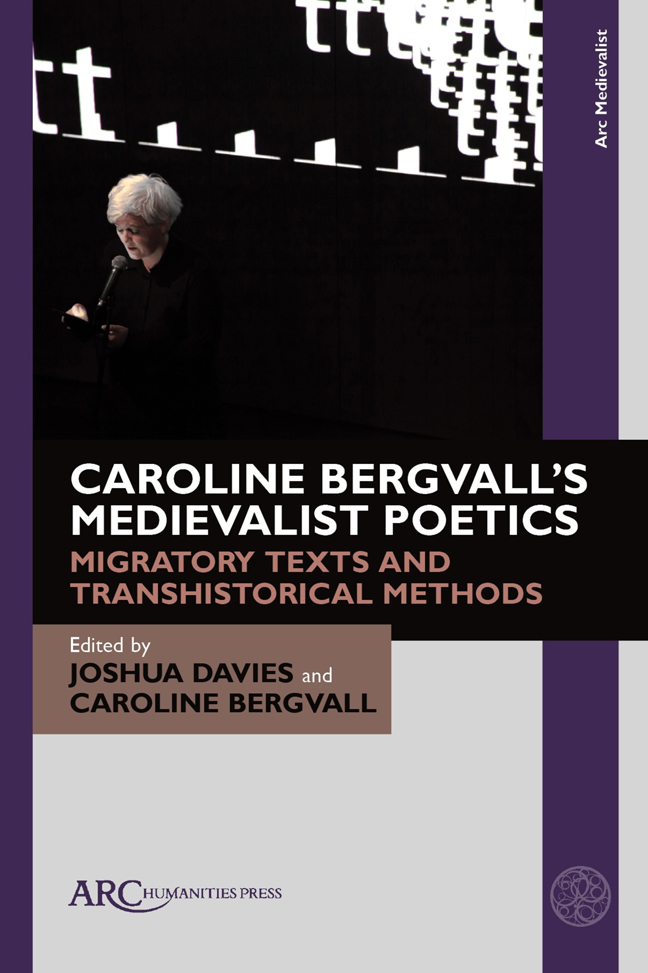Chapter 12 - Drifting into the Fog: The Opacity of the Past in Caroline Bergvall’s Drift
Published online by Cambridge University Press: 20 February 2024
Summary
Let the tides shake your life let your life shake the ground until your bones are bonedust
WHAT DO WE gain from studying the distant past? We can’t ever really know it, so what makes a thousand years ago relevant now? The Middle Ages is everywhere in our modern lives: on television, at the movie theater, in a toddler’s first storybook, at a liveaction dinner show. The Middle Ages is also nowhere: the fodder of fantasy, a replace-ment of a past that once existed but has since—through the slow passing of one day after another day, one century at a time—drifted away into a permanent fog. If we get close enough, touch its objects, walk its pathways, and read its languages, we can get to know it in some ways, but others will remain covered. But then again, sometimes it is the fog that makes the thing the thing that it is. Sometimes the essence of a thing isn’t behind the fog; it is made by the fog. Caroline Bergvall’s Drift falls into the chaos of language and time to reveal the joy in letting go of what we think we can know and accepting the ambiguities of not knowing.
A few days before the 2019 annual conference for the Modern Language Association, I was walking through my hometown of San Francisco, drifting through the chilled, foggy streets, excited for that dual experience of loathing and love as the wind bites your cold skin but also sweeps you away into its comfort. Perpetually a nuisance, San Francisco’s fog is nonetheless constitutive of its character, a welcome sign of home. I was prepar-ing for a roundtable, “Doing ‘Relevance’: Medi eval and Early Modern Perspectives,” for which the organizer Chad Leahy asked us “to discuss what ‘relevance’ means for [us], in practical terms, for [our] research, teaching, public advocacy, etc.” Lost to find an answer, I returned myself to my city, a “flâneuse,” to use Lauren Elkin’s play on the flâneur, an urban wanderer who, “attuned to the chords that vibrate throughout [her] city, knows without knowing.”
- Type
- Chapter
- Information
- Caroline Bergvall's Medievalist PoeticsMigratory Texts and Transhistorical Methods, pp. 107 - 116Publisher: Amsterdam University PressPrint publication year: 2023

